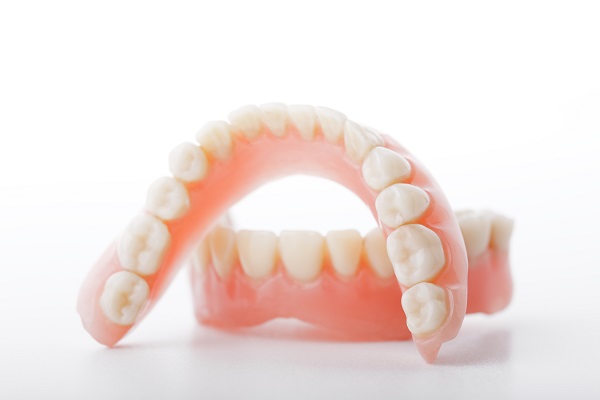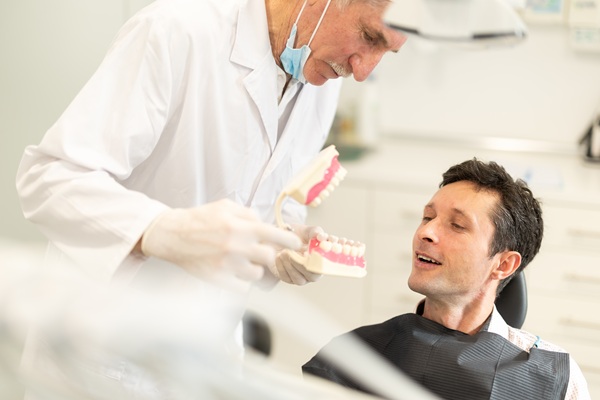What to Expect as a First-Time Denture Wearer

Dentures seem to be the ultimate solution when you lose one or more teeth as an outcome of gum diseases, trauma, or decay. Losing natural teeth is nothing less than an unpleasant experience.
Although you have an option to opt for dentures, in this case, the idea makes people hesitant of appearance and functioning alike. No question, dentures will take some time to adjust, and once you get used to, it will bring comfort. Take note that if your dentures slip, create a sore spot, or cause pain, look no further than consulting your dental expert to get rid of the condition immediately.
Tips for first-time denture wearers
Here are some pointers explaining what you should expect if you wear dentures for the first time:
1. Difficulty eating
Having trouble with eating is common when going for the dentures. You may need some time to adjust the way your teeth and support feel against your gums and palate. It will require some practice to chew with dentures on. Moreover, it is also necessary that your Dentures sit perfectly, not loose. It is highly likely that loose denture will slip even with adhesives. Also, it will come in handy if you practice biting and chewing at home before you start eating out again after the treatment.
2. Difficulty speaking
You may find speaking a tough nut to crack when wearing dentures at first. This aspect is one of the major concerns of the denture wearer. However, you can overcome the problem via practicing. It is worth noting that speaking correctly with dentures require weeks of practice. So, do not expect it to happen overnight. The best way to improve your speaking is by reading a book out loud. Continue reading like this until you get comfortable with the way dentures feel when you speak.
3. Regular cleaning
It is true that dentures do not need vigorous brushing on a daily basis. However, it is still essential to maintain oral hygiene to prevent the onset of sores and other oral problems. Make sure to clean your dentures regularly to remove food particles. Dental experts recommend that even if you have no teeth left that you would still need to visit your dentist for a routine oral examination. This is necessary to evaluate gums and other soft tissues present in your mouth.
Remove dentures to ensure good oral hygiene
It is evident that wearing dentures 24/7 will allow you to adjust them in a short time span. Despite that, you should practice oral hygiene and remove dentures from time-to-time. Most first-time denture wearers are unaware of the fact that overlooking sores can result in severe infections. Not removing dentures will cause more damage and delay your adjustment time.
Questions about wearing dentures?
You may have heard that dentures will take two or more weeks to adjust. However, you can speed up the adjustment time via safety precautions. Contact our office and let our trained staff help in guiding you to make the best decision for your oral health and dentures!
Call (256) 382-6690 today to reach René A. Talbot, DDS.
Check out what others are saying about our services on Yelp: Read our Yelp reviews.
Recent Posts
Choosing the best dentist is essential for maintaining your oral health. However, finding the right dentist for you can feel overwhelming with so many options available. Fortunately, by considering a few key factors and gathering some key information, you can identify a trustworthy dental professional who meets your needs.Convenience plays a significant role in choosing…
Endodontics treatment, which is the treatment of the tooth's inner pulp and structures, is one of the most efficient ways to save decaying or damaged teeth. Many individuals, however, get anxious when they learn they need it. This is mostly due to the widespread misconception that undergoing endodontic treatment is unpleasant. It is incorrect —…
Patients often search for root canal treatment when a tooth aches from deep decay, a crack, or inflamed pulp tissue. This therapy removes irritated nerve tissue, disinfects the canal space, and seals the tooth to prevent reinfection. By preserving the natural root, the procedure maintains bite balance and chewing strength. With careful planning, a restored…
Looking for information on periodontic care? Continue reading to learn about situations when a dentist might recommend periodontics. Periodontal disease, commonly known as gum disease, is a serious oral health issue that can result in severe oral infections and tooth loss. Periodontal disease may be contained and handled with the appropriate professional treatment.Gum disease can…


